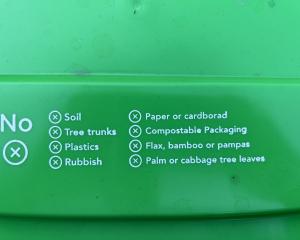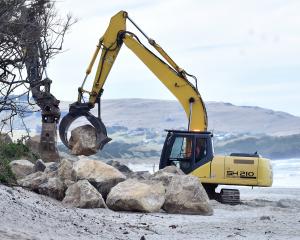
Up to $80 million of Dunedin’s water maintenance work could be shared between two large firms for eight years but the Dunedin City Council is confident its plans will not breach anti-competitive conduct laws.
The council is negotiating with Fulton Hogan and Downer to lead 3 Waters pipeline renewals work for an initial period of six years.
Contracts with the two firms — yet to be signed — also include a two-year right of renewal.
There are concerns the arrangement resembles "jobs for the boys" and smaller players could be disadvantaged, but representatives for the council said a close eye would be kept on prices and ratepayers would get value for money.
Council 3 Waters group manager Tom Dyer said the two companies would receive a minimum amount of work.
Awarding them long-term contracts would provide certainty.
The approach would help "build long-term future capacity to the Dunedin market".
Smaller operators would still have a chance to pitch for most of the remaining water work.
They would have the same opportunities to work as subcontractors to Fulton Hogan and Downer as before, he said.
Mr Dyer said smaller companies had expressed some nervousness but there could be provisions about a minimum amount of work for subcontractors and two-thirds of the council’s renewals budget would not be covered by the new contracts.
In its publicity about the negotiations, the council called the arrangement a partnership approach and acknowledged this would reduce competition between the two firms.
The Otago Daily Times brought the scheme to the attention of the Commerce Commission.
"We will consider whether we need to make further inquiries to understand the nature of the arrangement," a commission spokeswoman said yesterday.
Mr Dyer confirmed the council had not been in contact with the commission, but was confident the arrangement would not fall foul of the law.
The two contracts would replace about eight to 10 each year, cutting down on tendering paperwork, he said.
The tender process had often produced a "consistent outcome" where one of the two big firms would win a contract.
Cr Lee Vandervis could see some benefits from the council’s new approach but he was wary of the impact on smaller players.
"As a previous contractor, it seems to me like jobs for the boys, and spin on top."
Cargill Contracting director George Terry said he felt there was security for the council in dealing with big companies.
However, smaller companies could often do just as good a job.
"We subcontract a lot to Fulton Hogan and have a good relationship with them," Mr Terry said.
Council infrastructure services committee chairman Cr Jim O’Malley said the procurement process should improve efficiency and promote a stable market.
That could lead to the city having better capability to get more work done.
A quantity surveyor would be tasked with making sure pricing remained on par with comparable market rates.
Fulton Hogan construction divisional manager Richard Lee said working together was "the way of the future".
Downer Otago regional manager Anthony van de Water said its new contract would enable the firm to "continue our path of building strong teams and investing in our business and people locally".
Mr Dyer said the big companies’ willingness to offer opportunities to subcontractors would be monitored.
Comments
Well it all sounds good I see a case of he said she said when things don't go to plan of who done what work, I think the DCC managing two contracts for the same thing will be impossible to do, they have a proven track record of not being able to manage one contractor. Will strict records be kept of who done what, will one contractor company labeled pipes so in years down track they know who done what. lets hope Dunedin doesn't have two different sized pipes.












